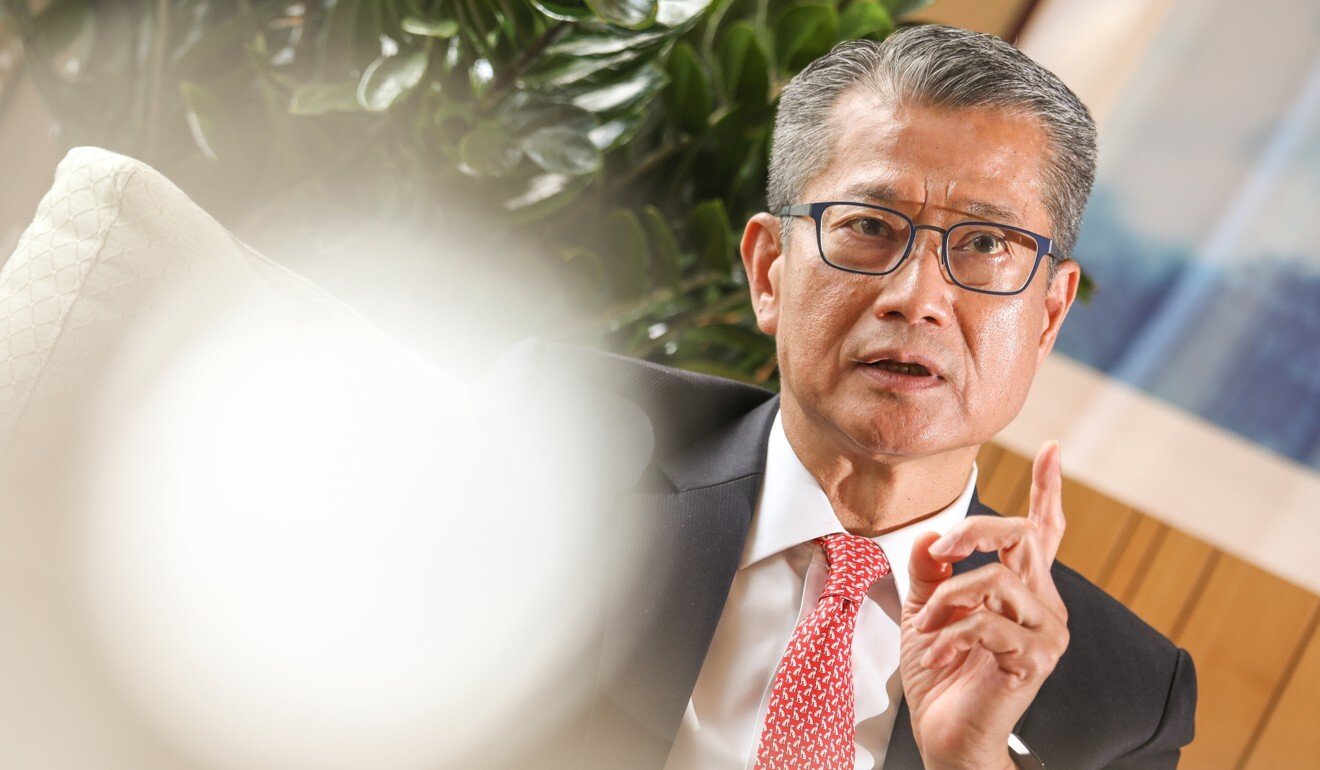The Hong Kong Growth Portfolio, similar to Singapore’s sovereign wealth fund Temasek, will invest in projects centred on lifting competitiveness.
Hong Kong moved closer on Wednesday to launching an unprecedented HK$22.4 billion (US$2.9 billion) investment vehicle with six non-officials appointed to helm the initiative.
The administration had identified top executives from sectors such as innovation and technology, as well as banking and commerce for a term of two years from October 1. They will become members of the governance committee for the investment drive.
The group will serve as high-level advisers to provide strategic steering for the Hong Kong Growth Portfolio, guiding matters such as investment mandates and asset allocation.

Chaired by Financial Secretary Paul Chan Mo-po, the committee comprises: Victor Fung Kwok-king, group chairman of trade multinational Fung Group; lawyer and venture capitalist Victor Chu Lap-lik; banker Chen Shuang; venture capitalist Herbert Chia Pun-kok; Hong Kong Science and Technology Parks Corporation chairman Sunny Chai Ngai-chiu; and Cyberport non-executive chairman Lee George Lam.
“The appointed non-official members of the governance committee include experts from the private equity and venture capital field, as well as leaders from the financial services and business sectors,” Chan said. “I look forward to benefiting from their insights and advice on strategic matters of the Hong Kong Growth Portfolio.”
The investment initiative stemmed from Chan’s 2020-21 budget speech in February, aiming to tap into 10 per cent of the government’s HK$224.5 billion Future Fund to strategically invest for growth.
The new portfolio, similar in nature to Singapore’s sovereign wealth fund Temasek, will invest in Hong Kong-specific projects centred on lifting the city’s competitiveness in financial services, commerce, aviation, logistics and innovation.
Lower priority is placed on real estate despite the city’s tradition in property investments.
Chai of the Hong Kong Science and Technology Parks Corporation said he would work with other members to propel Hong Kong forward and strengthen the city’s long-term competitiveness.
“Innovation and technology play a critical role in achieving economic diversification and sustainable growth for Hong Kong,” he said.
Lam said he looked forward to contributing to the goal of “consolidating and strengthening Hong Kong’s status as a leading financial, commercial and innovation centre”.
Paul Chan said a two-tier framework, including governance and investment arms within the committee, had been set up.
The investment side will be chaired by Secretary for Financial Services and the Treasury Christopher Hui Ching-yu, and be made up of representatives from relevant government agencies to decide on the appointment of general partners.

han told the Post earlier that the city’s de facto central bank, the Hong Kong Monetary Authority, would proceed to pick private equity funds in the second half of the year to help manage the investments.
There has been an increasing need to plan for the city’s future, after Chan anticipated a record deficit in 2020-21 from billions of dollars in relief measures earmarked to support residents and businesses during the Covid-19 pandemic.
He estimated that the deficit would balloon to more than HK$300 billion, which would reduce the city’s reserves to HK$800 billion, a level equivalent to 12 to 13 months of government spending, similar to what was experienced in 2003 during the severe acute respiratory syndrome outbreak.















